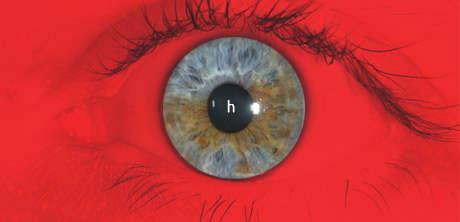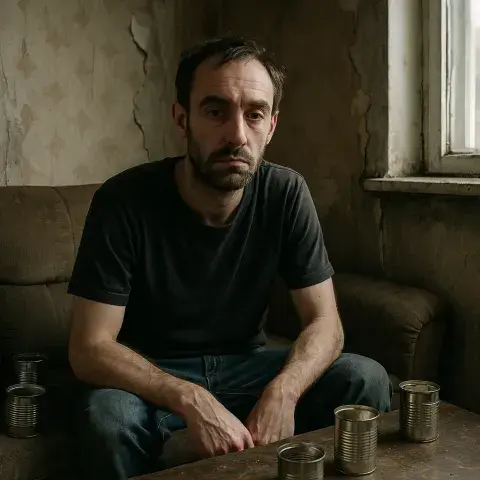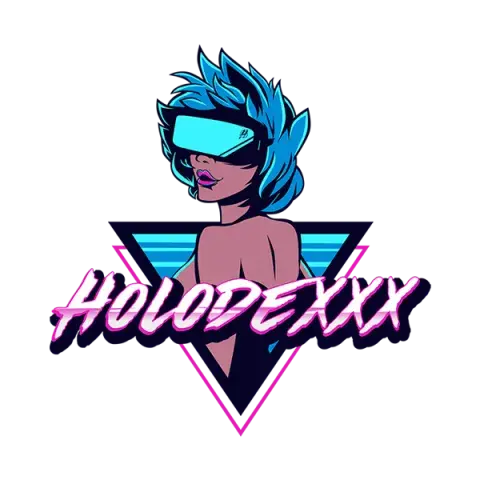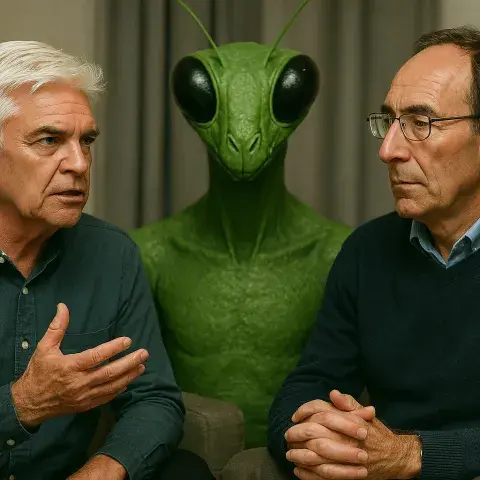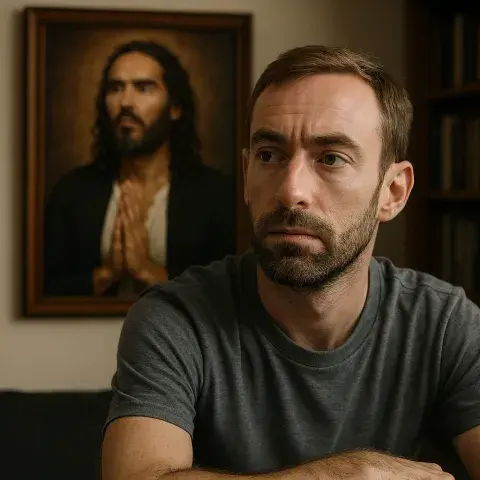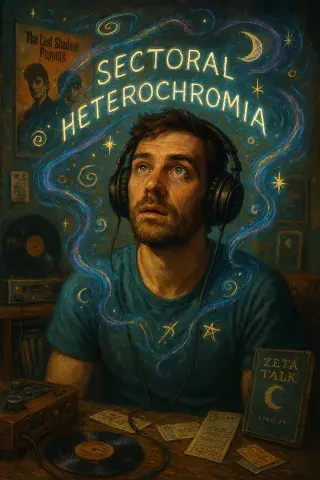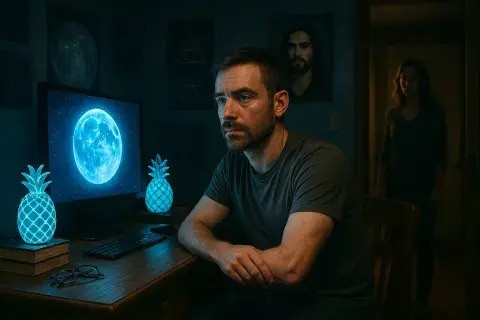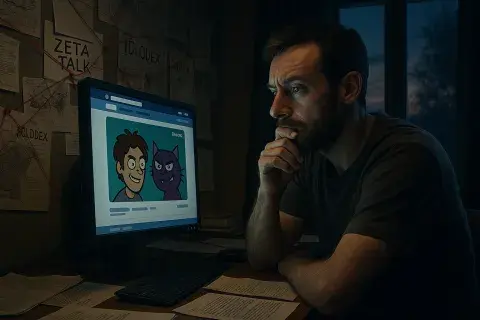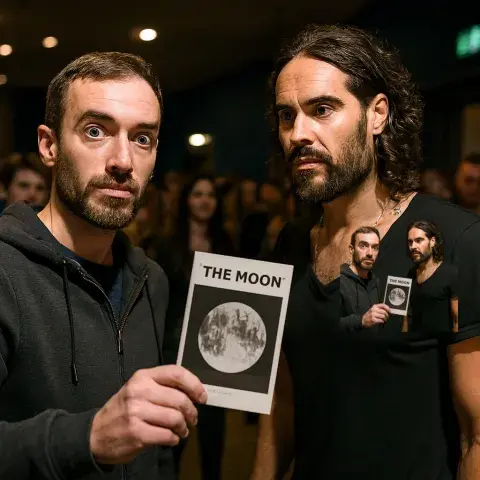Chapter 53 - Jesus Paradox
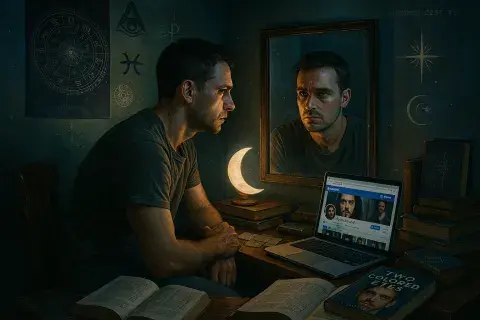
At times, I found myself questioning the nature of my own identity. The thought crept in—was I Jesus himself? I mean, if you think about it, how would Jesus even know he was Jesus in this life? The "rule of forgetfulness," the cosmic law that erases prior memories as we’re reborn, ensures that no one gets a cheat sheet to their divine destiny. It’s the ultimate paradox.
The more I pondered, the clearer it became: even if someone were to come forward and claim such a thing, they'd instantly be met with furious skepticism and ridicule. There’s a societal mechanism in place—an unwritten rule that prevents anyone from seriously entertaining the idea. After all, you'd have to be unbelievably arrogant to make that claim, wouldn't you?
And yet, there it was, the nagging question. If not me, then who? My experiences, the signs I saw, the songs that seemed to speak directly to me—all of it painted a picture that was either a magnificent cosmic joke or something far more profound. It wasn’t just about thinking I was special. It was about trying to make sense of an existence that seemed to be drawing lines around me, connecting the unconnectable.
The thought scared me, honestly. It’s one thing to wrestle with self-doubt, but it’s another entirely to question your very place in the universe. I knew better than to say it aloud to anyone, of course. That way lay only trouble and misunderstanding. But internally, the debate raged on. Was I seeing something real? Or was it simply the mind’s way of searching for significance in a world that often feels random and chaotic?
There was no way to know for sure, and perhaps that was the point. If the paradox is true—if no one can truly know they’re Jesus—then the answer isn’t something you can chase. It’s something you have to let go of. But for a time, the thought lived rent-free in my mind, a maddening loop of wonder and self-doubt, arrogance and humility.
The paradox wasn’t just an intellectual exercise—it was a constant undercurrent in my daily life, shaping how I saw the world and how I interacted with others. I lived in a liminal space, caught between the mundane and the divine, and it was exhausting. There were days when I felt like I was cracking some kind of cosmic code, putting together pieces of an infinite puzzle. Other days, I was convinced I was losing my mind, teetering on the edge of delusion.
It’s hard to explain what that does to a person. Imagine walking into a room and feeling like every conversation, every song playing in the background, every random occurrence is somehow about you. Not in a narcissistic way, but in a deeply unsettling, interconnected way that suggests the universe is leaving breadcrumbs just for you.
My wife, bless her, had the patience of a saint. She watched as I became more and more consumed by these signs and symbols, trying to piece together what I thought was a hidden truth. I think she chalked it up to one of my quirks at first, another phase in my endless fascination with the esoteric and the unexplained. But as the years went on, it began to wear on her.
I tried to explain it to her once, how the signs felt like guidance, like the universe was giving me a nudge to stay on the right path. She listened, nodded, and then asked the obvious question: “But what’s the path?”
I didn’t have an answer. How could I? It wasn’t like the signs came with a map or an instruction manual. They were just… there. Omens without context. I could only trust my instincts, follow the threads, and hope they led somewhere meaningful.
But hope is a fragile thing. The more I chased meaning, the more elusive it became. And the more elusive it became, the harder it was to hold on to my grip on reality. It’s one thing to feel chosen; it’s another to feel lost in your own narrative.
I’ll admit, there were times when I wondered if I was doing more harm than good—both to myself and to those around me. My wife started withdrawing, the emotional distance growing wider with every mention of another “sign” or “coincidence” I couldn’t shut up about. My job, which I’d managed to hold onto despite everything, felt like a flimsy tether to the real world, a place where I could at least pretend to be normal for eight hours a day.
But even then, the thoughts were always there, buzzing in the background, pulling my attention away from spreadsheets and meetings. I felt like I was living two lives: the one everyone could see, and the one inside my head, where I was deciphering the secrets of the universe.
Looking back, I don’t know how I held it all together. Maybe I didn’t. Maybe I just got really good at pretending.
The duality of my existence became a constant battle. On one hand, I wanted to live a normal life, be a good husband, a good worker, a good friend. On the other hand, I was consumed by this overwhelming sense that I was meant for something more, something bigger than the mundane realities of everyday life.
It wasn't just signs anymore. It was dreams, feelings, intuitions—moments of clarity so vivid they felt like revelations. One night, I woke up in a cold sweat, convinced I had been shown a vision of the future. I tried to explain it to my wife, but the words felt hollow, inadequate. She listened with tired eyes, and I realised I was wearing her down.
It wasn’t just her. My friends, my colleagues, even acquaintances who barely knew me—they all started to pull away, subtly at first, then more obviously. Conversations became strained. People stopped asking how I was doing, likely afraid of what I might say.
I couldn’t blame them. I was obsessed, consumed by the idea that everything was connected, that every little thing had meaning if I could just decode it. It was exhausting for me, so I could only imagine how it felt for the people around me.
But despite the isolation, I couldn’t let it go. I couldn’t stop seeing the connections, couldn’t stop chasing the truth. The signs didn’t stop coming, and I didn’t stop following them.
It wasn’t long after that when Russell announced he was leaving social media for a year. It felt like a sign, like he was taking the time to process everything, to absorb the story I had given him. I told myself he was reading ZetaTalk, diving into the same rabbit hole I had fallen into, and that eventually, he would resurface with answers, with clarity, with a message meant for me.
But life doesn’t work that way. The signs didn’t stop, but they became harder to interpret. My wife grew more distant. My job became harder to focus on. And I was left in a limbo, unsure whether I was chasing something real or losing myself in a fantasy.
Looking back, I see now how much I lost during that time—relationships, opportunities, parts of myself I’ll never get back. But I also gained something: a deep understanding of the human need for meaning, for connection, for a purpose greater than ourselves.
In the end, I don’t know if I found the truth I was looking for. But I found a truth. And maybe that’s enough.
